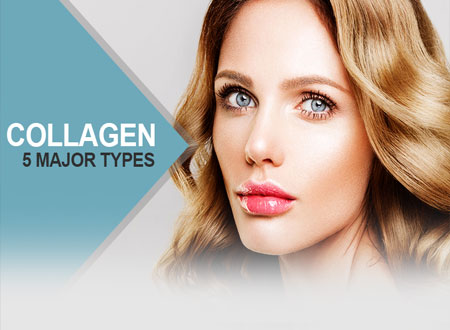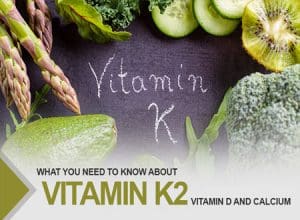
Recent research has discovered there are at least 28 different types of collagen.
Type I : This is the most abundant type of collagen in your body. Around 90% of the collagen you do have is type 1, and it’s the stuff that helps maintain healthy teeth, bones, hair, tendons, and ligaments.
Type II : This is the type found in cartilage. This rubbery tissue is what cushions your joints, and it’s why type 2 collagen is what promotes healthier, pain-free joints.
Type III : Next to type 1, this is the second most abundant type of collagen in your body. It’s what helps keep your skin and the lining of your organs and arteries smooth and pliable.
Type IV : This type is found on the surface of all your cells and is the type that makes up hair strands and can promote healthier, fuller hair. And interestingly enough, it’s the type of collagen found in the placenta.
Type X : This is the type of collagen that helps with bone formation and cartilage as well, helping prevent things like arthritis and osteoporosis.
Most supplements do NOT include all five types. Usually, they provide with one or two types. This means your body can only use that type of collagen for the specific role that type plays.
While vitamin C is the most important nutrient you need to use collagen in your body, there are other nutrients that assists as well including SILICA and ZINC.
Silica : Silica also keeps all our connective tissue system pliable and flexible. Deficiency of silica contributes to heart disease, arthritis, back injuries, and more. As far as collagen is concerned, it’s actually a “building block” of collagen, so it helps your body more effectively use the collagen you’re taking. Typically you can find silica in leafy greens, but one of the best sources is organic horsetail.
At Dr Golding’s medical practice we make use of an ancient medicinal herb called horsetail which is very rich in silica, and helps detoxify Aluminium from the body in particular. Used in conjunction with collagen, it really helps make things super effective.

ZINC : Collagen-repairing enzymes in your body are all zinc-based. Without enough zinc, it doesn’t matter how much collagen you take in, your body won’t be able to do much with it. Zinc is also responsible for the breakdown of collagen in one’s body. Starting at about age 21, one’s collagen levels start to breakdown and decrease. One’s body breaks it down faster than it can replace it. At 25 it becomes a slippery slope. One loses about 1% of your collagen every year under “normal” circumstances. It’s more than that if you get too much sun exposure, are overly stressed, are a smoker, or don’t stay properly hydrated.
One day you look in the mirror and notice wrinkles on your forehead that appeared seemingly out of nowhere.
You notice tiny wrinkles around your eyes, and maybe a few larger ones on your neck.
You look at the skin on the back of your hands and fingers and see it isn’t as smooth as it used to be.
This is important because starting at about age 21, your collagen levels start to breakdown and drop off. Your body breaks it down faster than it can replace it. Then at 25 it’s a slippery slope. You lose about 1% of your collagen every year under “normal” circumstances. It’s more than that if you get too much sun exposure, feel stressed out all the time, are a smoker, or don’t stay properly hydrated.

Vitamin C is essential for collagen production in the body. Without it, one’s body cannot produce collagen. You’ve seen an old rusty car sitting in a junkyard that looks brittle and has holes from the rust.
That car looks like that because it’s oxidized. And just like the car sitting there becomes less and less functional, the more oxidized it gets. It’s the same with one’s connective tissue, one’s skin, and one’s collagen.
Vitamin C is the ANTI-oxidant that helps protect and prevent any of this from happening. So that’s why collagen and vitamin C are joined at the hip for life.
Bone broth is made from nothing more than water, animal bones, vegetables, and seasoning. Often the bones are roasted first, before simmering for very long periods of time, usually more than 24 hours – so that not only gelatin (which is a hydrolyzed form of collagen), but also many healthful minerals, are released into the broth. Bone broth is very rich in the amino acids glycine and proline. Glycine supports detoxification, while proline supports skin health, especially in combination with vitamin C. Gelatin also supports skin health and tone.
Bone broth also contains glucosamine and chondroitin sulfate, which combine to support healthy cartilage. Additionally, bone broth contains hyaluronic acid (also found in beans and root vegetables) which is given on its own as a supplement to osteoarthritis patients and is also injected into knee joints to reduce pain, along with increasing knee function and mobility.
All these many powerful nutrients in bone broth greatly contribute to joint health, which in turn may help to prevent inflammation-induced breakdown processes and improve overall mobility.
Low-level laser therapy (LLLT) is a fast-growing technology that is being used to treat many conditions that require stimulation of innate healing processes, relief from pain and inflammation, and restoration of normal function. Laboratory studies have shown an increase in production of pro-collagen and collagen along with other skin healing factors after skin exposure to low-energy laser irradiation.
Vitamin C is essential for collagen production in the body, by direct activation of collagen production, by serving as a co-factor for two enzymes that are responsible for stabilizing collagen molecules, and by other mechanisms. Clinical studies have shown that applying vitamin C directly on the skin increases collagen production. Consuming vegetables and fruits rich in vitamin C and other antioxidants also helps maintain collagen levels in the body.
Aloe vera has been shown to nearly double hyaluronic acid and collagen production when consumed by study participants. In laboratory experiments, naturally occurring compounds present in Aloe vera known as sterols have been shown to promote the production of type I and type III collagen.
Collagen supplements are produced from the connective tissue of animals and are commonly used to replenish collagen levels. In its natural state, collagen is made up of large molecules, which are “hydrolyzed,” or broken down into smaller molecules called peptides for better absorption. These are the collagen supplements that we recommend at Dr Golding Medical practice.
Watch Dr. Golding talk on Integrative and Anti-Aging Medicine.
Sign up for our newsletter to find out more about the exciting world of integrative medicine
